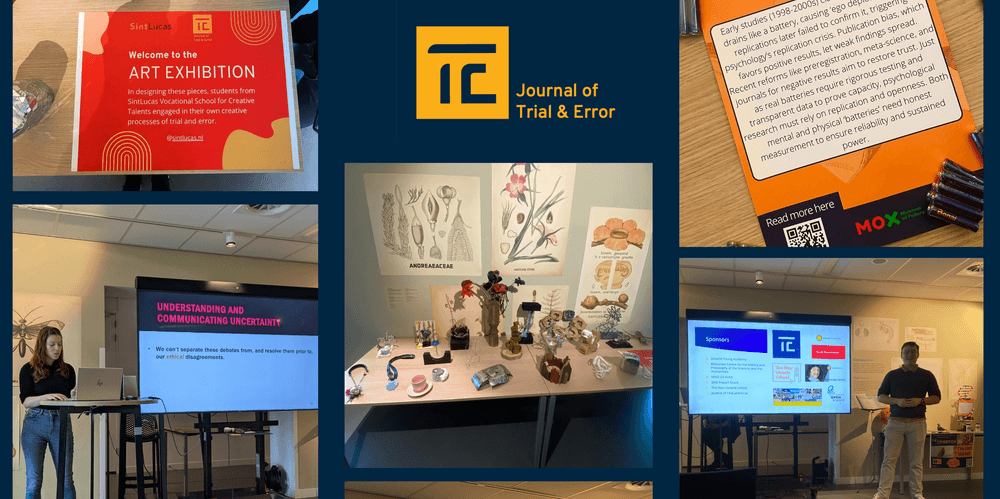~ 3 min read
The Birth of a Journal
Chair Martijn van der Meer recalls the Open Science meeting that inspired the birth of the Journal.
The Open Science talk we attended on that very November 23rd was delivered by Dr. Katja Mayer, a sociologist working as a postdoc at the School of Governance of the Technical University of Munich, where she investigates practices of Open Science in computational Open Science and big data. At the point of writing this post (the end of February 2019) I don’t remember that well which topics Mayer’s presentation precisely considered, but her message was loud and clear: science needs to be as democratic as possible; the contemporary practice of “publish or perish” was a very, very bad thing; it appears to be impossible to reproduce a lot of scientific results. Mayer pointed out that the combination of the publication bias and the reproduction crisis may lead towards bad science and can be solved by the (slightly elusive) concept of ‘Open Science’. A short discussion after her talk made clear that it was very hard to change the institutionalized systems based on evaluating scholars on the amount of citations and publications and the power of academic journals which earn money by subscriptions. According to Mayer, the question is not whether or how we should get in touch with Baconian ideals of science, but who can provoke ‘the’ transition in the right direction.
She answered her rhetorical question by pointing at her audience. According to Mayer, only young researchers can make change happen. I began to wonder what historians and philosophers of science can do in this revolution against established academic institutions. As reflectors of science, we are not so much interested in the ‘best’ scientific method, ‘good’ results or ‘good’ ways of doing science. We like to emphasize how science – as many scientists are most of the time very well aware of – is not always (if at all) a linear story of success. We like to give attention at how scientists cannot always produce the desirable data, because doing research is hard and frustrating. We, as historians and (most of the time) philosophers, like to think of science as a practice.
After the talk, Max, Stefan, Jobke, and I began discussing to which extent the problems Open Science aims to solve play(ed) a part in our short academic experience. Max told how, as he experienced it, his thesis ‘failed’, because his results were not publishable: they only showed how the databases he had to use were unusable. While drinking one of the free beers, we had a fruitful and passionate discussion about the simple idea that publishing papers in which the hypothesis remains unanswered - papers with ‘bad results’ so to say - could potentially meet the goals of Open Science. Would this not meet the standards of the publication bias in a more doable way? Is it not thinkable that the publication of bad-practices is very productive? And, the biggest question of all: what if we, as idealistic young science enthusiasts, started such a journal ourselves?
Martijn is a historian of science and medicine and works as a lecturer and researcher at Erasmus Medical Centre and Erasmus University Rotterdam. He is also a policy advisor on responsible research at Tilburg University. In 2018, he co-founded the Center of Trial and Error and currently chairs the board.
License
The Birth of a Journal by Martijn van der Meer is licensed under a Creative Commons Attribution 4.0 International License.




